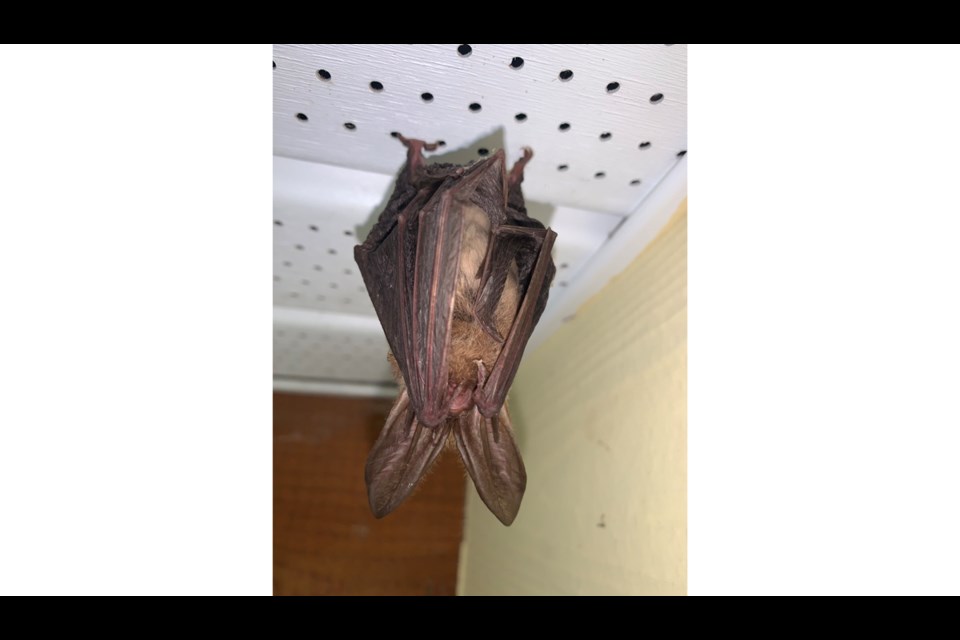With the weather starting to warm up a little, members of B.C.’s “bat community” are asking the public to keep an eye for bat activity and also to report dead ones.
The BC Community Bat Program is eagerly awaiting the local bat population appearing from hibernation.
However, according to the program, dead bats or bats returning earlier than usual can indicate trouble - both can be signs of white-nose syndrome (WNS), a fungal disease responsible for the death of millions of bats in eastern North America, which is spreading on the west coast.
Confirmed to the west and east of the Cascade Mountains in Washington State, just 150 kilometres south of the U.S. border, the presence of the fungus is “very worrisome for the health of our bat populations.”
“To monitor the spread of the disease, we need more eyes on the ground,” said Danielle Dagenais, regional coordinator with the BC Community Bat Program.
“Outdoor enthusiasts and homeowners with roosts on their property may be the first to find evidence of trouble.
“Signs of the disease include unusual bat activity in winter and the appearance of dead bats outdoors as they succumb to the effects of WNS.
“We are encouraging the public to report dead bats or any sightings of winter bat activity to the BC Community Bat Program toll-free phone number, website, or email below.”
Bat carcasses, added Dagenais, must be retained so that they can be collected and submitted for testing for WNS.
“This would provide the earliest indication of the presence of the disease in B.C.,” said Dagenais.
“Please contact the program to follow protocol to retain a dead bat if you have spotted one. Reports of winter bat activity will help focus research, monitoring and protection efforts.”
While bats are generally hibernating out of sight this time of year, not every winter bat sighting signals disaster.
Bats often hibernate by themselves in a woodpile or basement entryway.
“If possible, these sleeping bats should be left alone – keep your distance, snap a photo, and report to the BC Community Bat Program,” advised Dagenais.
“If you must move a bat, visit www.bcbats.ca for advice. Remember to never touch a bat with your bare hands.
“Bats are also occasionally spotted flying on relatively warm winter days or evenings. Healthy bats may wake up to drink or even eat, if insects are active.
“Enjoy these sightings and remember to let us know when and where winter bat activity was observed.”
If you find a dead bat, report it to the BC Community Bat Program (www.bcbats.ca, [email protected], or 1-855-922-2287 ext. 11) as soon as possible for further information.

